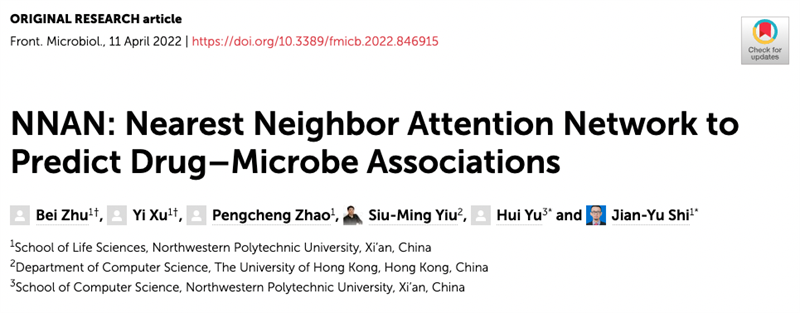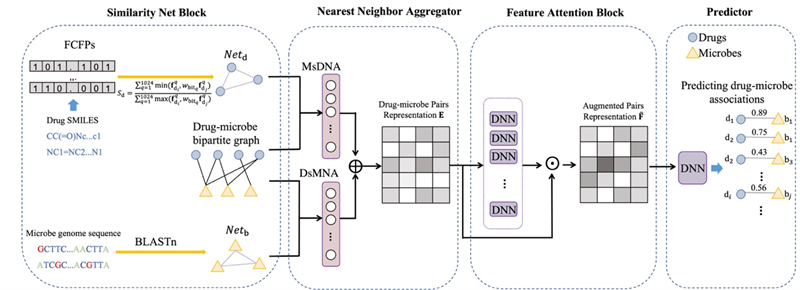Recently, Professor Shi Jianyu of the School of Life Sciences of Northwestern Polytechnical University, Associate Professor Yu Hui of the School of Computer Science and Professor Yao Zhaoming of the Department of Computer Science of the University of Hong Kong formed the "BT IT" interdisciplinary research team, making progress in the field of "drug-microbe" potential association prediction methods. The team has designed a deep learning model called "Nearest Neighbor Attention Network (NNAN)" that can be used to screen potential "drug-microbe" associations, which is expected to reduce drug screening costs effectively. The findings were published in Frontiers in Microbiology (Front. Microbiol., 11 April 2022), a journal in the field of microbiology.

Existing studies (including cell experiments, animal experiments, epidemiological studies, clinical cases, etc.) have confirmed that the human microbiota is closely related to human health. When the microbiota is abnormal, it can lead to many common metabolic disorders. For example, abnormal gut flora can lead to non-alcoholic fatty liver disease, obesity, diabetes, etc. On the other hand, when oral drugs are used to treat these diseases, many drugs can be metabolized by the body's microbes, significantly altering their pharmacological effects, resulting in reduced therapeutic effects for patients. Therefore, it is essential to identify potential "drug-microbe" associations prior to use. However, due to the variety of microorganisms, the traditional "drug-microbe" correlation assay method is expensive and time-consuming and cannot be used on a large scale.
Artificial intelligence technology can predict potential "drug-microbe" associations in a short time, thus pointing out the direction of exploration for traditional biological experiments and greatly saving costs, which has become a new research hotspot. By constructing the heterogeneity map of "drug-microbe", the research team proposed a deep learning model for Nearest Neighbor Attention Network (NNAN). Experimental results from two standard data sets and real case studies show that the model can effectively screen potential "drug-microbe" associations.

Zhu Bei and Xu Yi, PhD students in the School of Life Sciences, were the co-first authors of the paper. Professor Shi Jianyu and Associate Professor Yu Hui, School of Computer Science, were the co-corresponding authors of the paper. The research results have been supported by the National Natural Science Foundation of China and the Key Research and Development Program of Shaanxi Province.
(Translator: He Hongyao)
